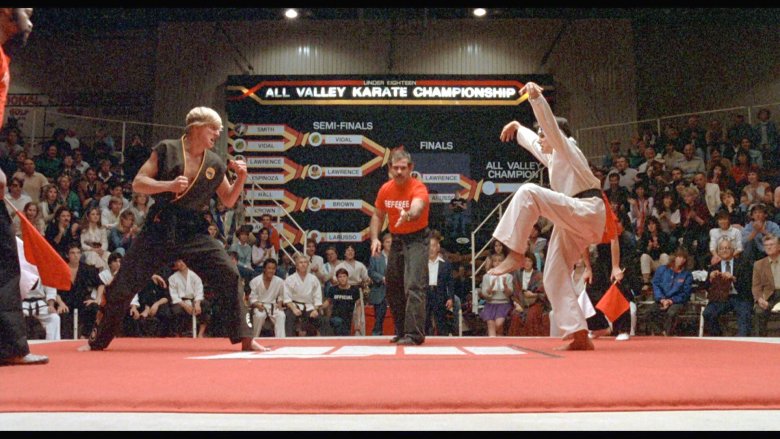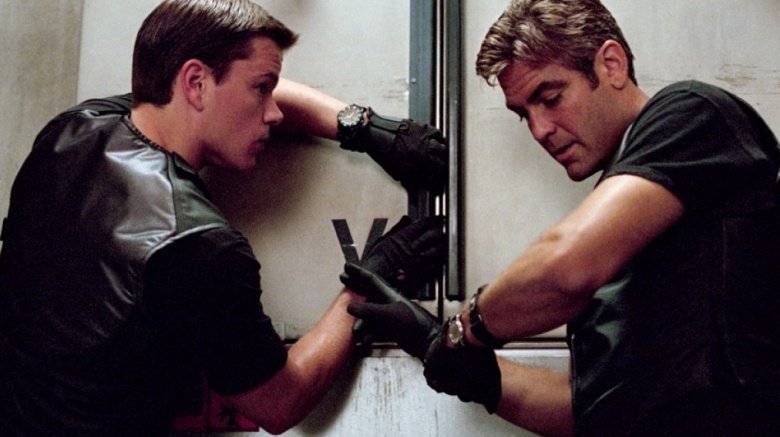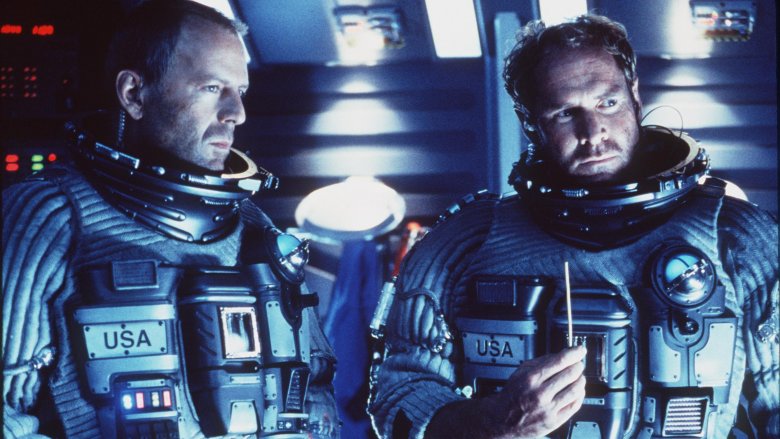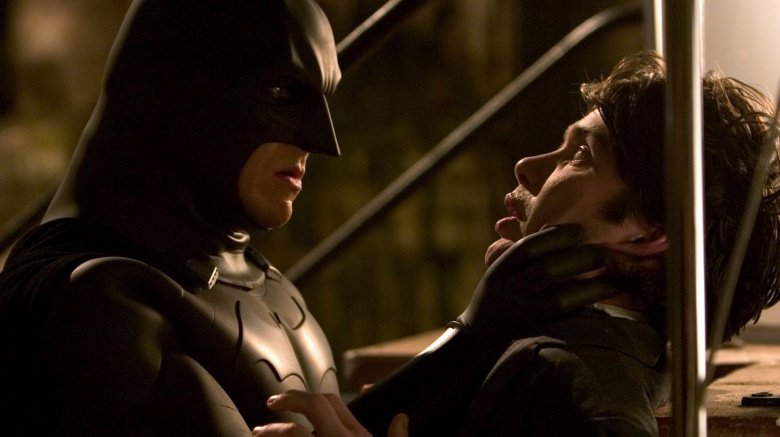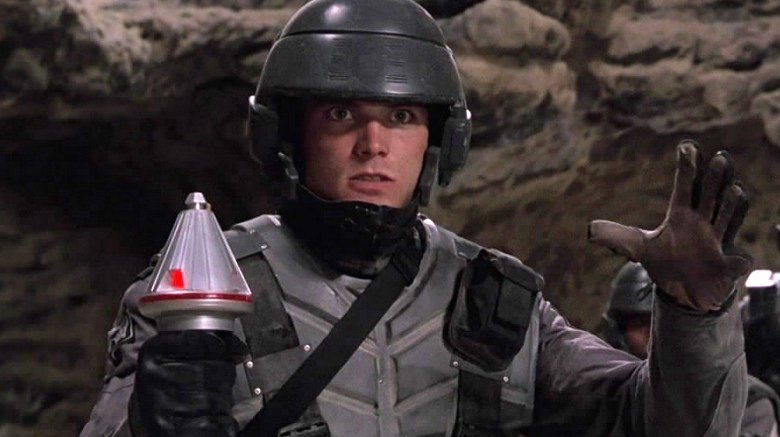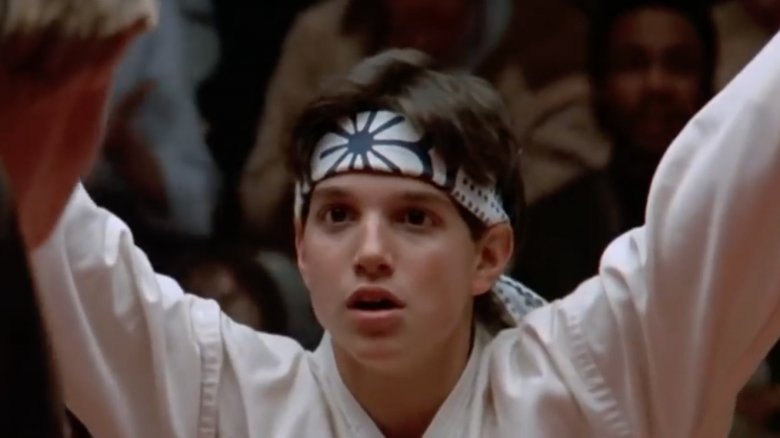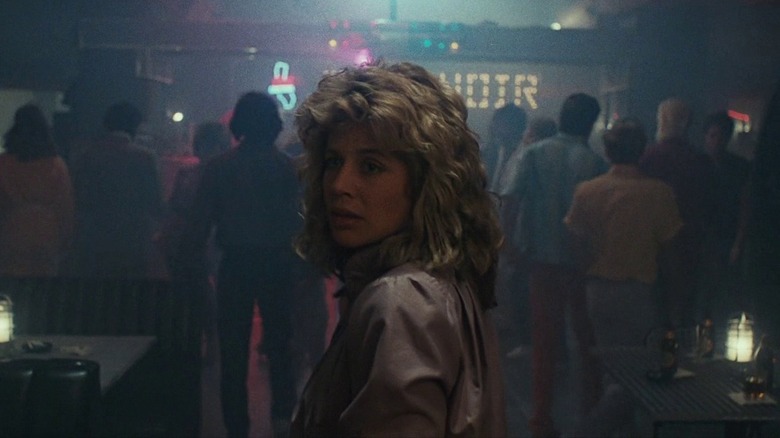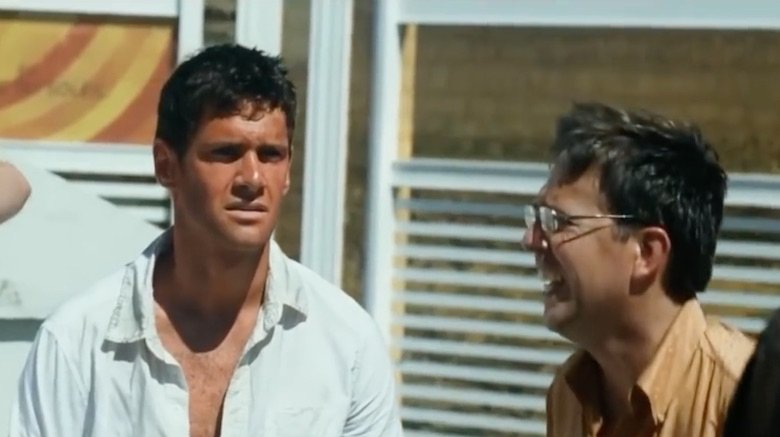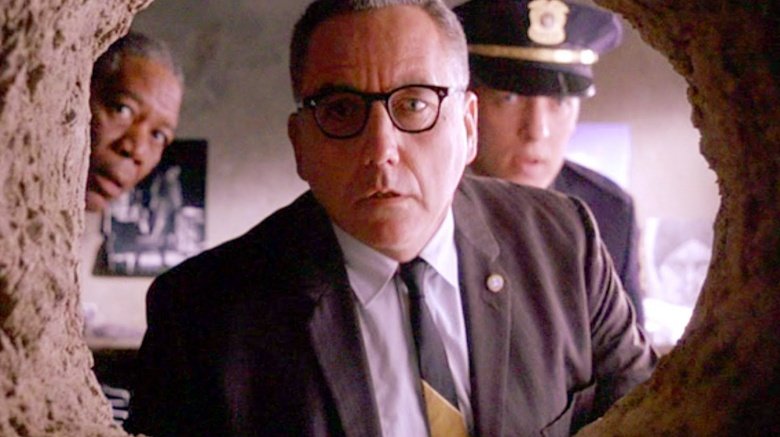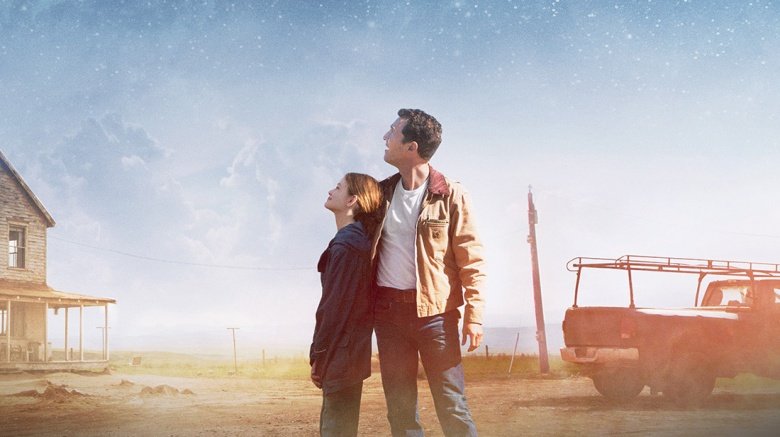Awful Movie Plot Holes Everyone Just Ignored
When a movie is great, we don't always notice if part of the story doesn't make sense — we get so caught up in the action that we forget to ask, "Wait, why did that happen?" Some great movies have gaping plot holes, but we forgive them because everything else is so much fun. Movies are the ultimate spectator sport. Over the span of two hours, we get to inhabit another world, fall in love with quirky characters, and take a thrilling ride. The storytelling! The twists and turns! The crazy climaxes!
Sometimes, though, problematic details can dampen all that movie magic. Suspension of disbelief is one thing, and we're willing to go there. But huge, gaping plot holes? Um, maybe not. (But hey, don't worry, these are all still highly enjoyable films despite their wait ... what? moments.)
Here are some awful plot holes that everyone just ignored. Be careful: spoilers galore ahead.
How did those flyers get in the vault?
Ocean's 11 has so much going for it. A stellar cast, an action-packed story, and a triumphant ending where the crew makes off with $150 million of casino money after pulling off an incredible switcheroo. It all goes down when Danny Ocean and his crew tell casino boss Benedict they'll blow up his vault of cash unless he puts it in a waiting van. He eventually does as he's told, but hedges his bets by calling in a SWAT team and having his flunkies follow the money. And when they of course intercept the vehicle? The bags are full of x-rated flyers instead of dinero — and the "SWAT team" back at the casino is actually Ocean and his team in disguise taking the real loot. Woot!
That is, until you stop to wonder how the fake "money" got in the vault in the first place. The only people who've been in there are Yen, who sneaks in via a tiny cart, and Ocean and Caldwell, who rappel down an elevator shaft. No bags with any of them. So maybe the fake SWAT team snuck it in there? Nuh-uh. The decoy van leaves before that could ever happen.
So we're left with a major plot hole. Even director Steven Soderbergh just kind of shrugs when asked about it in the director's commentary. The bottom line: No one knows, man. Just enjoy the heist.
Might be easier for astronauts to drill for oil
Ahhhh, Armageddon. The stakes. The songs. The potentially life-ending space debris.
The scoop: A rogue asteroid the size of Texas is heading directly for earth. Unless something is done, it will wipe out mankind in just 18 days. So NASA head Dan Truman hires deep sea oil driller Harry Stamper and his roughneck team to implant nukes 800 feet into the meteor's core, theoretically splitting the meteor in two and sending both parts careening past Earth rather than smashing directly into it. Paris and Shanghai bite the big one along the way, but in the end, our fair planet survives.
The problem: These oil drillers had four days of training to become astronauts, tops. Wouldn't it have made more sense just to teach astronauts how to drill instead ? When Ben Affleck, who plays A.J. in the movie, pointed this out to director Michael Bay, he was reportedly told to shut up. On the commentary of a special DVD edition, Affleck noted, "In a week, we're going to learn how to be astronauts? This is a little bit of a logic stretch, let's face it." Bay has since apologized — and then un-apologized — for the movie's flaws.
But aren't humans mostly water?
Batman Begins explains so much. Like why Bruce Wayne) was freaked out by bats as a kid, why they (and he) are partially responsible for his parents' death, and how he became a defender of justice.
What it doesn't quite account for, however, is how the evil plot by Ra's al Ghul makes any sense at all. Basically, he plans to spread an inhaled toxin throughout Gotham, creating mass hysteria and destroying the city. So far, so good. To execute the plan, he steals a powerful microwave emitter from Wayne Enterprises that's designed to vaporize the water supply and make the deadly drug go airborne. Everyone will then breathe it in and drop dead. Evil genius, right?
Well, maybe not. Anyone who boiled water while the toxin was lurking in the water supply would have been exposed to it — and anyway, since humans are largely composed of water, that microwave emitter would have boiled everyone from the inside out. Inhale, schminhale, not necessary. Also, why not just put the drug into the water so people drink it? Seems easier all around. Either way, holy plot hole, Batman!
Nuking should be the first defense, not last
Imagine this: It's the 23rd century and a superior race of alien bugs threatens human existence. When the scary creatures somehow vaporize Buenos Aires with an incredibly accurate asteroid despite being light years from Earth... well, that means war. The humans zoom off to to the bugs' planet to defend their own. It's Starship Troopers!
Oh, but the invasion turns out to be so terribly misguided. The military seemingly has zero clue about what strategy to take. Or what weapons might be effective against insects that can shoot deadly space goo into the atmosphere, decimating whatever it happens to hit. So the military embarks on some wildly ineffective man-to-bug combat, resulting in a rash of gruesome injuries. After a while, the humans finally decide to simply nuke the bugs. It's — not surprisingly – very effective.
So why didn't they just do that in the first place? (Hint: They don't call it one of the most misunderstood movies for nothing.)
You can't win with an illegal kick
When Daniel moves from New Jersey to California and befriends hot cheerleader Ali, her ex Johnny is not about it. He and his gang practice a vicious form of karate at a dojo called Cobra Kai, and they unleash it on the new kid when he steps out of line. Lucky for Daniel, the quirky caretaker at his new apartment just so happens to know something about karate — and a more honorable form of it, too. Mr. Miyagi agrees to teach Daniel his ways, and arranges for him to fight Johnny and the Cobra Kai at a local tournament.
Miyagi's training and Daniel's hard work get him to the semi-finals at the event, where one of the Cobra Kai disables him with an illegal kick to the knee. Daniel powers through using a pain suppression technique from Miyagi and goes on to meet bully Johnny in the finals. After Johnny does further damage to his injured leg, Daniel assumes a secret "crane kick" stance and deals a whopping kick to Johnny's noggin, winning both the match and the girl.
Except... the ref has stated repeatedly that blows to the head are illegal. So who really won that fight after all? Maybe the Cobra Kai.
Try a little white lie once in a while
Time travel is tricky. There's the potential of changing future events, or the past, or even having to duck passes from your own parent. (Shout out to Back the the Future!)
In The Terminator, time travel blows a huge plot hole in the entire franchise. The whole premise of the movie rests on the fact that both the Terminator and Kyle Reese are sent back to 1984 from 2029. The Terminator is on a quest to kill Sarah Connor (Linda Hamilton) because her unborn son John protects future generations from killer cyborgs such as himself. Kyle — who is actually John's father — is there to protect Sarah from the Terminator (and impregnate her with John). In the end, Kyle sacrifices himself to the cause, the Terminator gets smashed in a hydraulic press, and Sarah goes on to give birth to John.
The Terminator is relegated to old-fashioned methods of tracking down his prey once he's in 1984, and systematically killing every Sarah Connor in the phone book is semi-forgivable. But how did Kyle exist in the future, and get sent back to the past by John to become his father, if he was killed in 1984? And why didn't John Connor just lie about his mom's name?
Wait, who's telling this story?
The Social Network chronicles the birth of Facebook. From its beginnings as facemash — a site that allowed users to rate pictures of female students Mark Zuckerberg acquired by hacking into Harvard's computer network — to the $500 billion company it is today, there now exists an entire generation who can't remember when Facebook didn't exist.
The movie is told in flashback, with Zuckerberg and Eduardo Saverin giving their depositions about the lying, cheating, and backstabbing that happened along the way to making the ubiquitious social networking platform. This method of storytelling allows the movie to jump between the past and present, offers conflicting sides of the story, and generally just keeps the action moving along.
There's just one sticking point: In one scene, Zuckerberg and Saverin are hooking up with Facebook groupies in the bathroom of the club they're at together. So who's giving the deposition now? All we know is it wasn't the real Zuckerberg, who says the movie was hurtful and not factual. No matter — it's still awesomely entertaining, and it won four Golden Globes and three Academy Awards.
Pretty sure security would have spotted him
The Hangover is one of the funniest, raunchiest, wildest comedies ever. No wonder it's one of the top 25 best-selling DVDs ever. So not to take away from all the great lines and killer scenes, but have you ever noticed it has a plot hole bigger than the Vegas strip where it all takes place?
A quick recap: Phil Wenneck, Stu Price, and Alan Garner take Doug Billings to Vegas for his bachelor party. Drunkenness and hijinks ensue, as planned. Unplanned? Losing Doug and waking up to a trashed hotel room containing mysterious tiger, chicken, and baby, and no memory of what happened the night before. The trio then has to piece together the forgotten events to find their friend before his impending wedding. Along the way, they have to deal with gangsters, drug dealers, and Mike Tyson himself.
Two days later, the guys finally find Doug. He's on the roof of the Mirage where they're all staying, sunburnt but otherwise no worse for the wear. After the relief that he's okay wears off, we're left to wonder: How did he go unnoticed for that long? Don't casinos have crazy security and cameras everywhere — including rooftops? Besides, wouldn't Doug have tried to somehow get noticed during those long 48 hours? Seems like he could've at least yelled or something.
How did that poster get back on the wall?
The Shawshank Redemption has one of the best cheer-out-loud climaxes ever. Seriously, how could you not be thrilled when wrongfully convicted inmate Andy Dufresne finally busts out of jail after spending 19 years chipping away at his escape route? The fact that he's eventually reunited with his friend from the inside Red is just more icing on the cake.
But wait. Have you ever noticed the glaring poster — err, plot hole — in there? It kind of makes that whole escape scene seem a little suspect. When the warden finds out his prisoner is nowhere to be found, he starts chucking chess pieces in frustration. One of them hits the Rita Hayworth poster hanging in the room. And that's when ... dun dun dun ... it breaks through the paper and hits the floor behind what's supposed the be a solid wall. The warden rips down the poster and discovers the tunnel to freedom. The look on his face is priceless. Everything is great in the world again.
Except when you start to consider how difficult it would have been for Dufresne to tie all his stuff to his leg, shimmy into the tunnel, and then somehow get the poster back up on the wall perfectly from inside it. It's basically impossible ... unless there was something supernatural going on? After all, the movie was adapted from a Stephen King novella, and Red's cell number was 237, the same as the cursed hotel room in The Shining. Hmmmmm.
Why not use your advanced technology on Earth?
Interstellar is admittedly a very cool movie. It introduces us to upper-level astrophysics (that even Neil deGrasse Tyson has no quibbles with) and an especially bleak dystopian future. All of which makes it fascinating ... not to mention confusing.
The main gist of the story is the world is being plagued by a mysterious blight that destroys crops and depletes oxygen levels. The resulting food shortages and breathing problems mean all of humanity is on the brink of extinction. What to do? Travel through a wormhole to find new inhabitable planets, of course. NASA puts together a team to head on off the intergalactic journey, led by Coop, a pilot who accepts the assignment despite his daughter Murph's tearful objections. Coop gets hurled around the galaxy, at one point ends up in a black hole where he can communicate with Murph through a "tesseract" behind her bookcase, and doesn't get back until she's an old woman. Make sense?
Well, sort of. But you know what else is problematic? The fact that even before Coop heads off to the Gargantua galaxy, it's revealed that the technology to artificially grow crops on other planets already exists. Why not just grow them on Earth?
